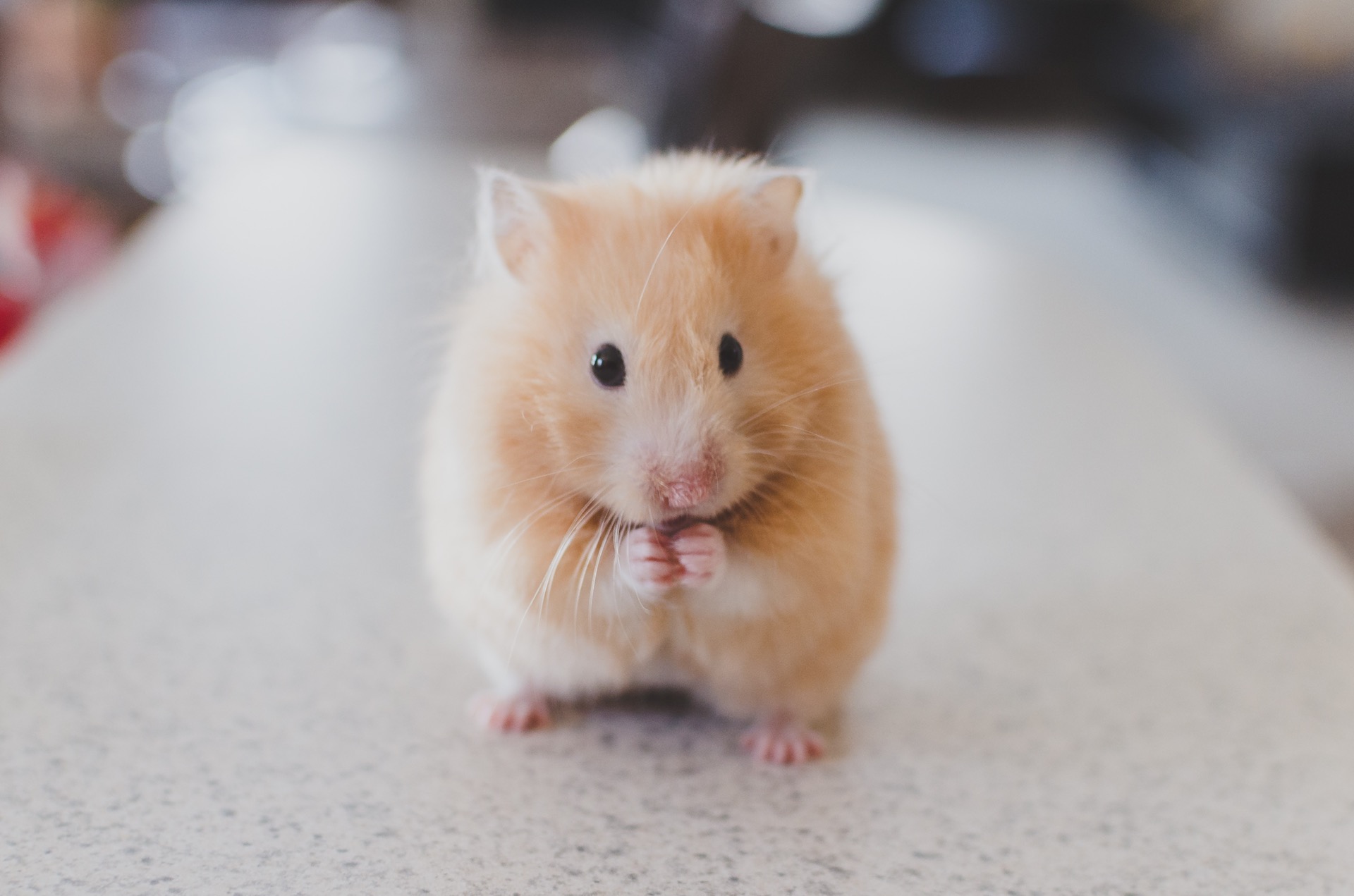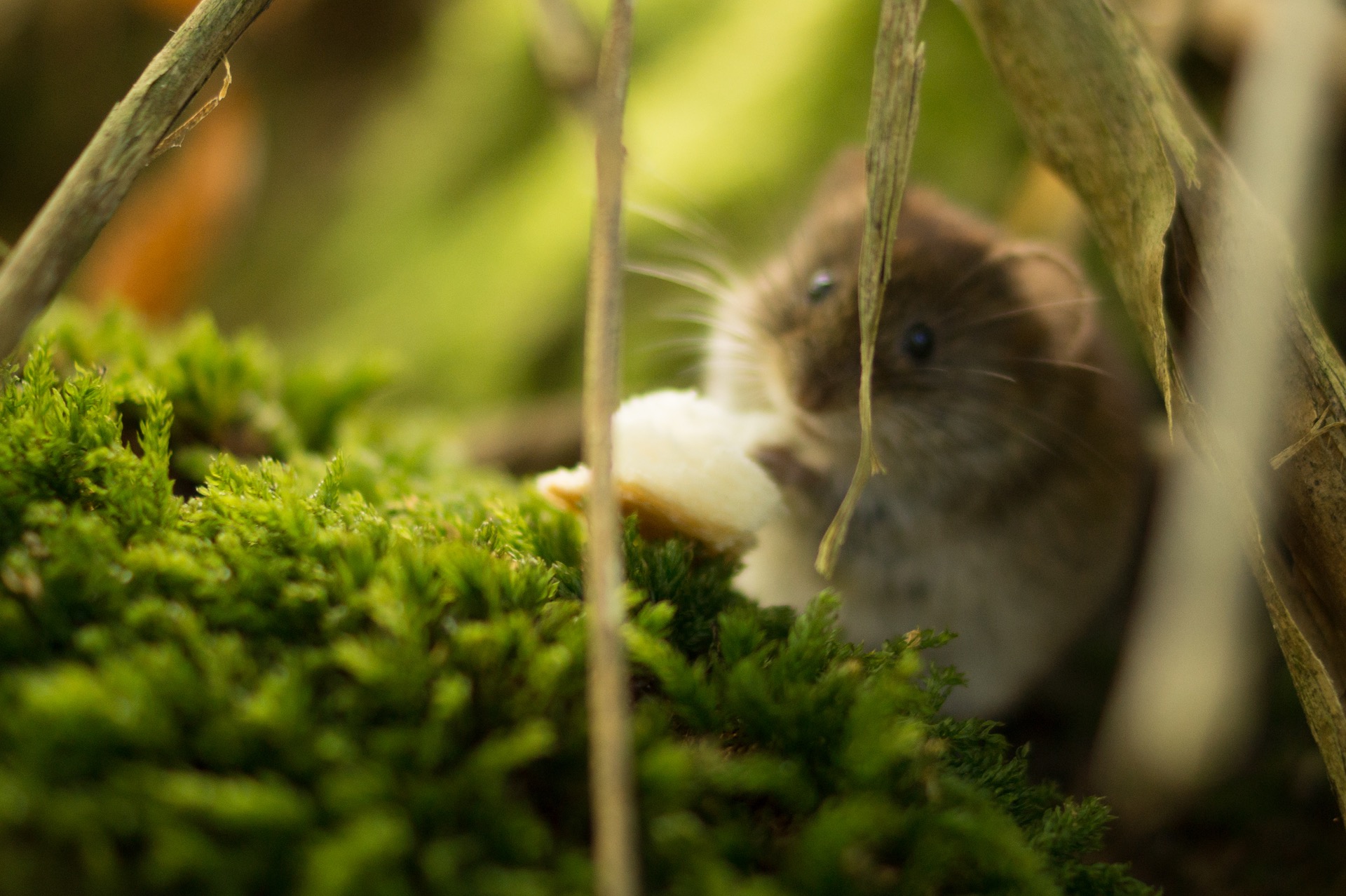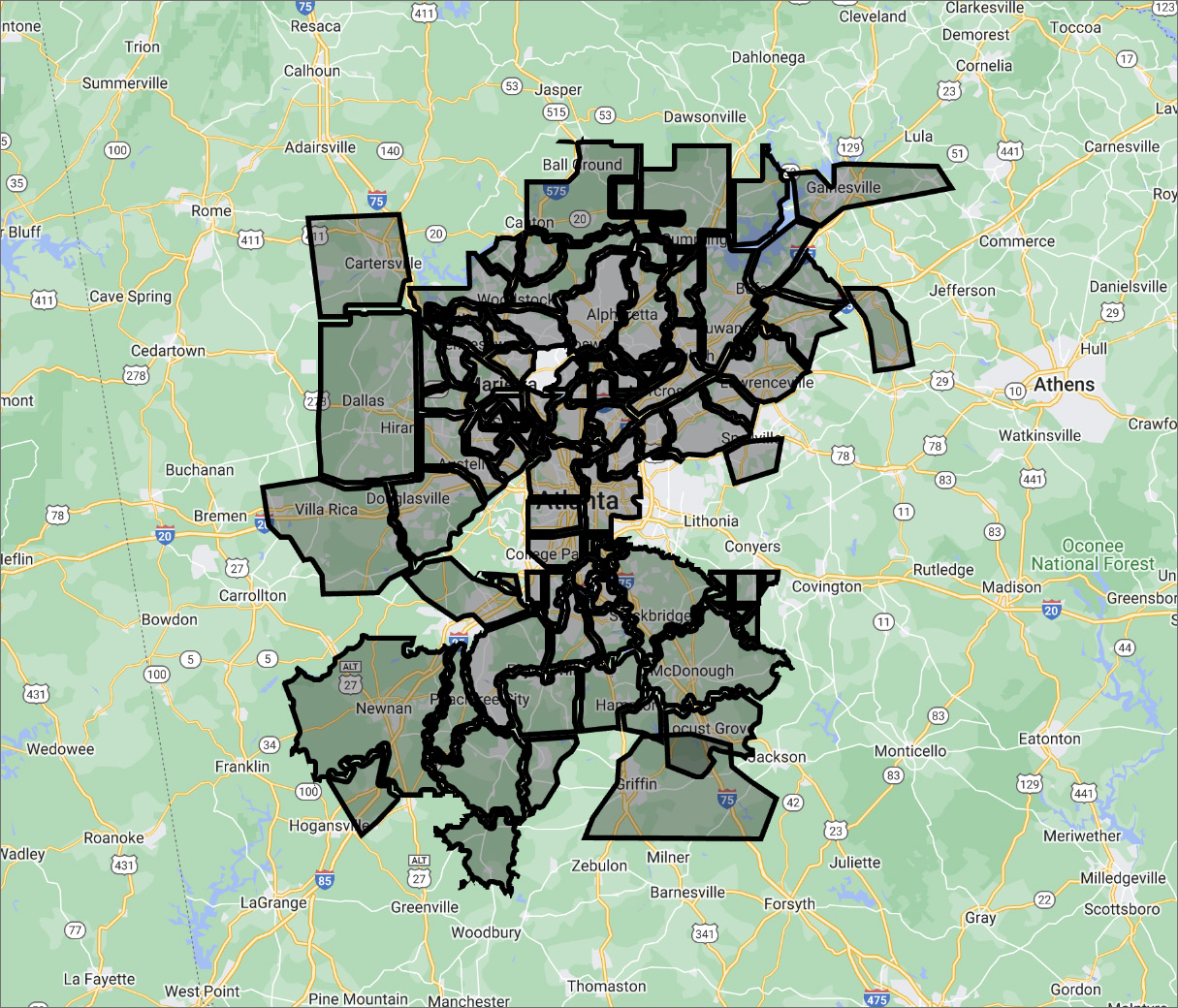Hamsters can make adorable, loving, and highly rewarding pets — but only with proper care from a dedicated owner. To help give your hamster the best head-start in life, our Atlanta pet sitters put together a short and simple guide to basic hamster care tips for beginner owners.

Hamster Care Guide for Beginner Owners
Before you purchase a hamster (or any pet), make sure you do plenty of research, especially if it is a breed or species you have never owned before. Veterinarians, animal shelters, and animal welfare organizations are generally reliable resources that can help you access plenty of detailed, accurate information. This article will help you get started by providing a basic overview of hamster care for beginners, including tips on:
- What to feed a pet hamster
- How to set up a hamster cage
- Pet supplies to buy for your hamster
What to Feed Hamsters
You can purchase hamster food at a pet store, typically in the form of pellets. In addition to feeding your hamster pre-made, store-bought food, it can also be beneficial to incorporate certain fruits and vegetables into its diet — in small amounts, that is. Remember, what looks like a tiny morsel to you can pack a hefty caloric punch for a hamster weighing just a few ounces!
Foods that are okay to feed hamsters include:
- Alfalfa
- Bananas
- Blueberries
- Broccoli
- Celery
- Cooked Chicken
- Cucumbers
- Dry Toast
- Kale
- Raspberries
- Romaine Lettuce
- Spinach
- Sweet Potatoes
- Zucchini
Foods you should never feed hamsters include:
- Almonds
- Avocado
- Candy/Chocolate
- Canned Foods
- Chips
- Chives
- Citrus Fruits
- Eggplant
- Garlic
- Jam/Jelly
- Leeks
- Onions
- Pork
- Raw Potatoes
- Scallions
These foods might be harmless to you or me, but all of them contain ingredients or chemicals that can be dangerous for hamsters. You should also avoid giving your hamster food that has butter, salt, pepper, or other spices or seasonings added.
Watch out for natural sugars, too. Give your hamster sweet treats like fruit or carrots sparingly to reduce the risk of your pet becoming overweight and developing obesity-related health problems.
Hamster Cage Setup
When selecting a hamster cage, you’ll want to look for three basic qualities. Make sure the cage has three qualities:
- Space
- Escape Prevention
- Easy Cleaning
First, the cage must be large enough to provide adequate space for your hamster to get exercise. Hamsters aren’t just sedentary balls of fluff. On the contrary, they can be extremely active. Even with an exercise wheel, your hamster still needs space to stretch out and run around.
The minimum size of the cage depends on two factors: how large your hamster breed gets (ranging from the tiny, three-inch Dwarf Hamster to the hefty seven-inch Syrian Hamster), and the type of cage materials you select (aquarium, cage-aquarium hybrid, plastic modular cage, or wire cage). Check the minimum recommendations for your breed of hamster and the type of cage you choose, considering factors like ventilation, cost, and weight. Remember to place the cage in an area that’s a comfortable temperature for hamsters, with fresh air but not too much air conditioning or direct sunlight.
Next, make sure the cage is designed to prevent your hamster from escaping. Between their small size and powerful teeth, hamsters can make masterful escape artists. Look for an escape-proof hamster cage, or check out online tutorials on how to modify an existing cage to make it hamster-proof. Just make sure you have all the right tools and skills before you get started, so that you don’t hurt yourself in the process.
Finally, choose a cage that will be reasonably easy to clean. Like any pet habitat, hamster cages require frequent cleaning in order to maintain healthy, sanitary conditions. Generally speaking, aquarium tanks demand more vigorous cleaning than wire cages, which might be a factor in your decision.
If you buy a toy or habitat that features lots of narrow tubes or compartments, plan for how you’re going to clean it and keep it well-ventilated in advance. You may need to buy long-handled cleaning tools for hard-to-reach curves, nooks, and crannies.

Checklist of Hamster Supplies You Will Need
Give our hamster supply checklist a last look before you head out to the pet store or click that “Submit Order” button. Did you leave anything out?
- Cage Cleaners (Disinfectant, Paper Towels)
- Food Dish
- Hamster Bedding/Nesting Material
- Hamster Cage
- Hamster Food
- Hamster Hide Box
- Hamster Toys
- Hamster Wheel
- Hamster Substrate
- Travel Cage for Hamsters
- Water Bottle/Water Dish
- Wooden Hamster Chews
If you don’t have the greatest tap water, don’t forget to grab some bottled water, either.
Atlanta Pet Sitting Company for Hamsters, Guinea Pigs, and Gerbils
Last but not least, make sure you have two phone numbers saved in your contact list: the phone number for a veterinarian you trust, and the phone number for Critter Sitters, the only in-home pet sitting service you’ll ever need to hire again. Give us a call today at 404-793-6178 to set up a free consultation and book an affordable, dependable pet sitter fast! We provide care for hamsters, guinea pigs, gerbils, rats, mice, and other small pets and exotic pets throughout the Atlanta Metro area.

